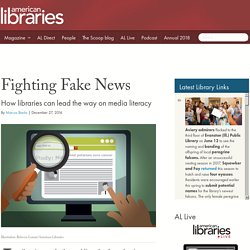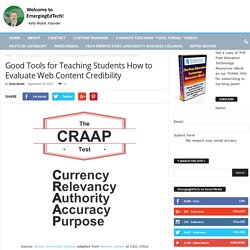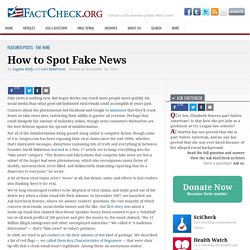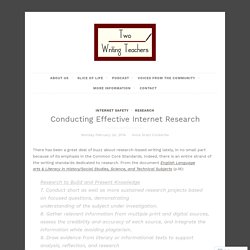

American Libraries Magazine. Librarians—whether public, school, academic, or special—all seek to ensure that patrons who ask for help get accurate information.

Given the care that librarians bring to this task, the recent explosion in unverified, unsourced, and sometimes completely untrue news has been discouraging, to say the least. According to the Pew Research Center, a majority of US adults are getting their news in real time from their social media feeds. These are often uncurated spaces in which falsehoods thrive, as revealed during the 2016 election. To take just one example, Pope Francis did not endorse Donald Trump, but thousands of people shared the “news” that he had done so. Completely fake news is at the extreme end of a continuum. The news-savvy consumer is able to distinguish fact from opinion and to discern the hallmarks of evasive language and half-truths. Librarians and journalists: natural allies Librarians can help change this trend. Information literacy at your library. Good Tools for Teaching Students How to Evaluate Web Content Credibility.
Source: Butler University Library, adapted from Meriam Library at CSU, Chico One of my favorite lessons to teach is about evaluating the credibility of web sites and other digital content.

I often start by showing the classic “Can't Lie On The Internet” video from AllState, which gets a laugh and helps to get students in the right mind set. Next, we check out the classic “DHMO” site and talk about what we see there. Dihydrogen Monoxide sounds pretty scary, but is this site legitimate? That's when I bring up Kathy Schrock's 5 W's PDF and use it as a kick off point to discuss the idea of using criteria for evaluation, not just gut reactions. Another tool I came across recently that I like is this 60 Second Guide for evaluating web resources.
There are countless resources on the web for evaluating content credibility, and it is easy to get a bit overwhelmed. The Challenges of Video and Social Media Credibility. How to Spot Fake News - FactCheck.org. Fake news is nothing new.

But bogus stories can reach more people more quickly via social media than what good old-fashioned viral emails could accomplish in years past. Concern about the phenomenon led Facebook and Google to announce that they’ll crack down on fake news sites, restricting their ability to garner ad revenue. Perhaps that could dissipate the amount of malarkey online, though news consumers themselves are the best defense against the spread of misinformation. Not all of the misinformation being passed along online is complete fiction, though some of it is. Snopes.com has been exposing false viral claims since the mid 1990s, whether that’s fabricated messages, distortions containing bits of truth and everything in between.
A lot of these viral claims aren’t “news” at all, but fiction, satire and efforts to fool readers into thinking they’re for real. In 2008, we tried to get readers to rid their inboxes of this kind of garbage. Here’s our advice on how to spot a fake: Fake news. Fake news lesson plan. Critical thinking is a key skill in media and information literacy, and the mission of libraries is to educate and advocate its importance. Discussions about fake news has led to a new focus on media literacy more broadly, and the role of libraries and other education institutions in providing this. When Oxford Dictionaries announced post-truth was Word of the Year 2016, we as librarians realise action is needed to educate and advocate for critical thinking – a crucial skill when navigating the information society.
IFLA has made this infographic with eight simple steps (based on FactCheck.org’s 2016 article How to Spot Fake News) to discover the verifiability of a given news-piece in front of you. Download, print, translate, and share – at home, at your library, in your local community, and on social media networks. The more we crowdsource our wisdom, the wiser the world becomes. Download the infographic Translations. Factitious. The definitive fact-checking site and reference source for urban legends, folklore, myths, rumors, and misinformation. Conducting Effective Internet Research. There has been a great deal of buzz about research-based writing lately, in no small part because of its emphasis in the Common Core Standards.

Indeed, there is an entire strand of the writing standards dedicated to research. From the document English Language arts & Literacy in History/Social Studies, Science, and Technical Subjects (p.18): Research to Build and Present Knowledge 7. Conduct short as well as more sustained research projects based on focused questions, demonstrating understanding of the subject under investigation. 8. Gather relevant information from multiple print and digital sources, assess the credibility and accuracy of each source, and integrate the information while avoiding plagiarism. 9. Research-based writing is quite challenging in that it requires complex reading skills. There is, of course, one HUGE thing that has changed about research-based writing: the Internet. Bookmark appropriate search engines. Your Turn Like this: Like Loading... Related. Selecting the Right Number of Keywords.
Extended Essay. Online Searching. Fake News.